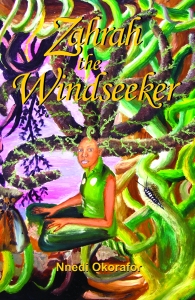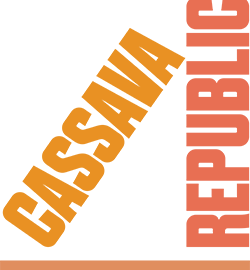As British-Nigerian actor, John Boyega, rightfully points out: “Because of the success of Black Panther, now Hollywood wants African stories and I think Nigeria is at the forefront of that.”
Despite this local and international demand for African art and culture, it appears that African media give undue relevance, privilege and recognition to works by Africans produced in the West while conveniently overlooking the exact same works available in the country.
Take for instance this – otherwise, captivating – video on the brilliant and multi-award-winning author, Nnedi Okorafor. On this blog (and as publishers of her works), we’ve consistently raved about Okorafor and how her writing is representative of a longstanding tradition of fantasy storytelling (think Ben Okri, Amos Tutuola, D.O. Fagunwa etc) in Nigeria and, most importantly how her books from Zahra The Wind-seeker to Who Fears Death evoke our African past and provoke the future into existence.


On the face of it, this video by Nigerian leading newspaper, Guardian NG, is on point and we’d have totally loved it except that it fails, like most other times, to celebrate, mention and carry along Nigerian publishers of Okorafor’s books. Alongside other publishers like Ouida and Farafina, Cassava Republic have published books by the celebrated author – this fact the Guardian NG conveniently forgets, using instead the Western title of the books, which ends up creating a false sense among their primary readers and consumers that these books are unavailable locally.


Anyone who follow Okorafor on social media, cannot miss her constant tweets or posts about her Nigerian publishers and where her books can be found.
The case with Guardian NG is not an isolated incident. There are other times when Nigerian media platforms would – for example – rather use the Western covers of Lola Shoneyin’s The Secret Lives of Baba Segi’s Wives over the Nigerian edition or of Ayobami Adebayo’s award-winning book, Stay With Me, instead of the Nigerian cover. Of the seven books profiled in Konbini five of them are published by Nigerian publishers and only one has the Nigerian cover. Media platforms should remember that there’s no point in featuring or reviewing a book when the cover image presented to their primary readers show book covers that are not available.


In a way this reinforces a sense that our cultural appreciation as Nigerians and Africans is dependent on the western media; that our artists and creatives must first be recognized and anointed by the West before we give them any attention.
Often times it goes beyond this, becoming symptomatic of a culture that is fueled by lack of diligence, research, proper editorial process and, if we dare say so, patriotism. While, of course, The Guardian NG and Konbini have always been allies of the literary and publishing industry, still Nigerian media houses need to do better – if not for anything but the wholesome need to stay true to raison d’être for journalism: to serve their local community first!
[/vc_column_text][/vc_column][vc_column width=”1/6″][/vc_column][/vc_row]